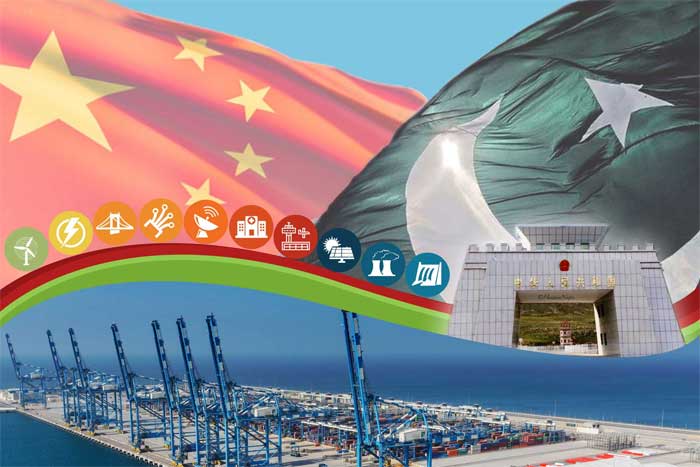A fear of Third World War

The recent escalation of conflict in Gaza, Palestine, marked by Israeli airstrikes and military operations, has sparked global condemnation. The situation began with clashes over issues like forced evictions in East Jerusalem, quickly escalating into rocket attacks and airstrikes, disproportionately affecting the densely populated Gaza Strip. The international community has called for an immediate ceasefire, expressing deep concern over civilian casualties and infrastructure damage. Despite efforts by organizations and nations, achieving lasting peace and addressing root causes will require sustained diplomacy and dialogue. The hope is for Israelis and Palestinians to coexist in peace and prosperity, but until then, efforts to end the cycle of violence must continue.
The Israel-Palestine conflict is a deeply entrenched and long-standing geopolitical dispute that has spanned decades, causing immense suffering and instability in the region. While the conflict’s complexities are numerous and deeply entrenched, there are several possible solutions that can pave the way towards a lasting and equitable peace between Israelis and Palestinians. We explore some of these solutions and discuss the challenges and opportunities they present.
Two-State Solution: The two-state solution has been a widely discussed framework for resolving the Israel-Palestine conflict. It envisions the creation of two separate and independent states – Israel and Palestine – living side by side within secure and recognized borders. Key elements of this solution include:
Borders: Defining clear and mutually agreed-upon borders is essential to establish the territorial integrity of both Israel and Palestine. Negotiations would need to address issues like land swaps, settlements, and access to resources.
Jerusalem: One of the most contentious issues is the status of Jerusalem. A two-state solution typically suggests a shared arrangement where both Israel and Palestine have capitals in Jerusalem, with East Jerusalem serving as the capital of the future Palestinian state.
Refugees: Resolving the issue of Palestinian refugees is crucial. A fair and equitable solution should include compensation, repatriation, or resettlement options for those who were displaced during the conflict.
The two-state solution has garnered international support and has been a focal point of peace negotiations for years. However, it faces several obstacles, including ongoing violence, the expansion of Israeli settlements, and political divisions among Palestinians.
One-State Solution: The one-state solution proposes the establishment of a single, democratic state that encompasses both Israel and the Palestinian territories. In this scenario, all citizens, regardless of their ethnicity or religion, would have equal rights and representation. Key aspects of this solution include:
Two-State Solution: The one-state solution seeks to address the issue of discrimination and unequal treatment by ensuring equal rights for all citizens, regardless of their ethnic or religious background.
Coexistence: Advocates argue that a single state would encourage cooperation, interdependence, and peaceful coexistence between Israelis and Palestinians.
Security: Combining the security forces of both parties would help in maintaining stability and preventing violence.
While the one-state solution offers a vision of inclusivity and equality, it also presents significant challenges. Skeptics argue that it may jeopardize the Jewish character of Israel and that both sides have deep-seated historical and cultural attachments to the land, making a shared state difficult to implement.
Regional Diplomacy Another approach to resolving the Israel-Palestine conflict involves regional diplomacy and cooperation. This solution would involve neighboring Arab states, such as Saudi Arabia, Jordan, and Egypt, playing a more active role in mediating peace negotiations. The advantages of this approach include:
Broader Support: Involving regional actors can help garner greater support for a peace agreement and create a more stable environment.
Economic Cooperation: Collaborative economic ventures could incentivize peace and improve the living conditions of Palestinians.
Security Guarantees: Regional cooperation can provide security guarantees to both Israel and Palestine, fostering trust in the peace process.
However, regional diplomacy faces its own set of challenges, including long-standing rivalries, political complexities, and differing interests among the involved nations. Additionally, it may not fully address the core issues between Israelis and Palestinians.
In brief, the Israel-Palestine conflict is a deeply entrenched and multifaceted issue that defies easy solutions. While the two-state solution, one-state solution, and regional diplomacy are potential avenues for peace, they all come with their unique challenges and complexities. Ultimately, the path to lasting peace will require genuine commitment from both sides, international support, and a willingness to address the root causes of the conflict.
A resolution to the Israel-Palestine conflict will not only bring relief to the people directly affected but also contribute to regional stability and global peace. The journey toward peace may be arduous, but the goal of a just and lasting solution should remain the guiding principle for all parties involved.
Fear of Third World War: The conflict between Israel and Palestine is a long-standing regional issue that has been a source of tension in the Middle East for decades. While it is a significant regional conflict, it is unlikely to escalate into a full-scale third world war involving major global powers like Russia, China, and the United States. Here are several reasons why:
Regional Conflict: The Israel-Palestine conflict is primarily a regional dispute centered in the Middle East. While various countries may express support for one side or the other, it does not automatically lead to a global conflict.
Nuclear Deterrence: Both Israel and some of its potential adversaries in the region, such as Iran, possess nuclear weapons or have advanced military capabilities. The presence of nuclear weapons often serves as a deterrent against large-scale military conflicts.
International Diplomacy: The international community, including the United Nations, has been involved in efforts to mediate and resolve the Israel-Palestine conflict for many years. There are diplomatic channels in place to address the issue, although progress has been slow and challenging.
Geopolitical Considerations: While countries like Russia, China, and Iran may express political support for the Palestinian cause, their involvement in a large-scale war would carry significant risks and could negatively impact their own regional and global interests. These nations are more likely to pursue their interests through diplomatic and economic means.
Global Security: A third world war involving major global powers would pose an existential threat to humanity. It is in the interest of all nations, including those supporting either side in the Israel-Palestine conflict, to avoid such a catastrophic scenario.
It is important to note that the Israel-Palestine conflict is a deeply sensitive and emotional issue with far-reaching humanitarian consequences. Efforts should continue to be made to find a peaceful and just resolution to the conflict through negotiations and diplomacy, with the aim of achieving a two-state solution or a mutually agreed-upon framework for coexistence.



